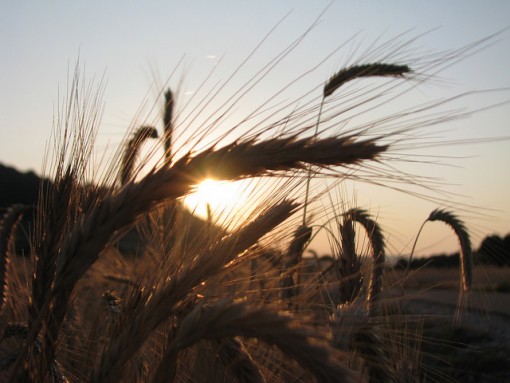Biomass energy is the energy that is derived from organic matter of plants and animals. Biomass in the form of dead plants, trees, grass, leaves, crops, manure, garbage animals waste can be a great source of alternative fuels that can be used to replace fossil fuels. Plants make use of process called photosynthesis that converts energy from the sun into chemical energy. This energy gets transferred to animals when they eat plants. When plants and animals waste are burned, the carbon dioxide and waste stored inside them is released back into the atmosphere. This is why biomass energy is said to be renewable.
https://www.conserve-energy-future.com/pros-and-cons-of-biomass-energy.php
Biomass energy is, perhaps, one of the more controversial types of alternative energy that is being used today. In this article, we’re going to take a look at the pros and cons of biomass energy that many people bring up when they’re looking at this energy source.
Pros of Biomass Energy
1. Renewable: Biomass energy is a renewable resource. The principal positive about biomass energy is that it creates power by utilizing renewable assets. These assets may be wood waste, tree buildup, handled wood pellets or urban waste. As a rule, biomass energy plants utilize leftover wood that comes from existing logging or sawmill ventures.
2. Dependency on Fossil Fuels is Reduced: It replaces other fuel sources. In all cases, the fuel might be immediately replaced. By utilizing natural materials to deliver power, there is less interest for power created by non-renewable assets, for example, coal and gas. The entire purpose of utilizing renewable energy is to facilitate the reliance on sources that are harming nature’s domain in such a large number of ways.
3. Carbon Neutral: It doesn’t produce carbon. The distinction between using biomass fuel rather than coal or gas is that the carbon that is discharged was already part of nature because of the plant. At the point when coal or gas is utilized it is expelled starting from the earliest stage it has been sequestered for a large number of years.
4. Widely Available: Biomass energy is widely available all over the world. Organic waste in the form of dead leaves, grass and trees, animal carcasses are available in abundance and can be used to produce biomass energy. This in another way is good as the amount of waste that could have gone to landfills can be used as a source of energy. As long as organic matter from plants and animals is going to exist, we are never going to run out of biomass energy.
5. Can be Used in Many Forms: Biomass can be used to create different products from different forms of organic matter. It can be used to produce methane gas, biodiesel and other biofuels. It can also be used directly as heat or to generate electricity using a steam turbine.
6. Helps Reduce Waste: It helps with waste management. Consistently we create huge amounts of solid waste. This waste involves biodegradable waste, recyclable waste, along with dangerous toxic waste. Biomass energy uses this waste so that it’s no longer sitting in landfills.
Cons of Biomass Energy
1. Not Totally Clean When Burned: The biggest contention against biomass as a clean energy is the pollution that is created from burning the wood and other natural materials. Sometimes, they’re as bad as the pollution that comes from coal and other types of energy resources. There are a number of different compounds that come from burning biomass. Even though biomass energy is considered to be renewable, it is hard to claim it is a clean or efficient power energy.
2. Can Lead to Deforestation: Wood is a major source of biomass energy. To produce considerable amount of power, large amount of wood and other waste products have to be burned. The desire to produce energy on a large scale can lead to deforestation that would destroy the homes of large number of plants and animals.
3. In-efficient: Biodiesel product like Ethanol which is produced by biomass is relatively inefficient as compared to gasoline. It has to be mixed with gasoline so that it can be used in combustion engines. Apart from that, long term usage of Ethanol can be harmful to the engines.
4. Requires Lot of Space: It’s hard to find a plant that is in a convenient place. Many times, biomass energy plants are found in urban areas, which means that they are causing more traffic in those areas and they are causing more pollution, which seems to be more of a problem than an actual help.
5. Expensive: The last problem that often comes up is how expensive this process is. The production of biomass plants is incredibly expensive and, in some cases, the costs are not worth the benefits. Transport and resource gathering expenses are high and will be continually needed every day. When you compare the process of biomass energy to fossil fuels, you find that the cost is actually much higher.
A typical point that is raised about biomass energy is the need to transport the fuel to the energy plant and the carbon emissions and pollution that is made in doing so. The contention is that this transforms a renewable energy into a type of energy that is dependent on fossil fuel as a feature of the generation, which means that it may not be that useful as a type of “alternative energy.”
It is still advancing. As with many types of alternative energy sources, a lot of time and energy has been put into biomass energy, and a number of scientists have been working to make it more effective and more efficient.
There is a solid contention against biomass in light of the fact that it causes crops to be planted with the aim of collecting for fuel in order to power the biomass plants. By developing crops that are committed to delivering fuel that will, in the end, be used for biomass energy, we are utilizing land that may have been utilized for food sources. This practice is said to be causing some of the food deficiencies in specific parts of the world. This is a complex issue and the recommendation that harvests developed for fuel causes food deficiencies is not necessarily a true statement. Many times, the crops that are planted for fuel are also planted alongside crops that are meant to be used for food as well, making it so that it’s used
For further information log on website :https://www.conserve-energy-future.com/pros-and-cons-of-biomass-energy.php


/arc-anglerfish-syd-prod-nzme.s3.amazonaws.com/public/F47G37BSZNF5BJ7QU6IDRJMMVU.jpg)
/arc-anglerfish-syd-prod-nzme.s3.amazonaws.com/public/76UTFSGTW5GOJI43IRVRKZPSS4.jpg)
/arc-anglerfish-syd-prod-nzme.s3.amazonaws.com/public/3IDREXS3WNE7HPJLUCPEZGJ6TA.jpg)




